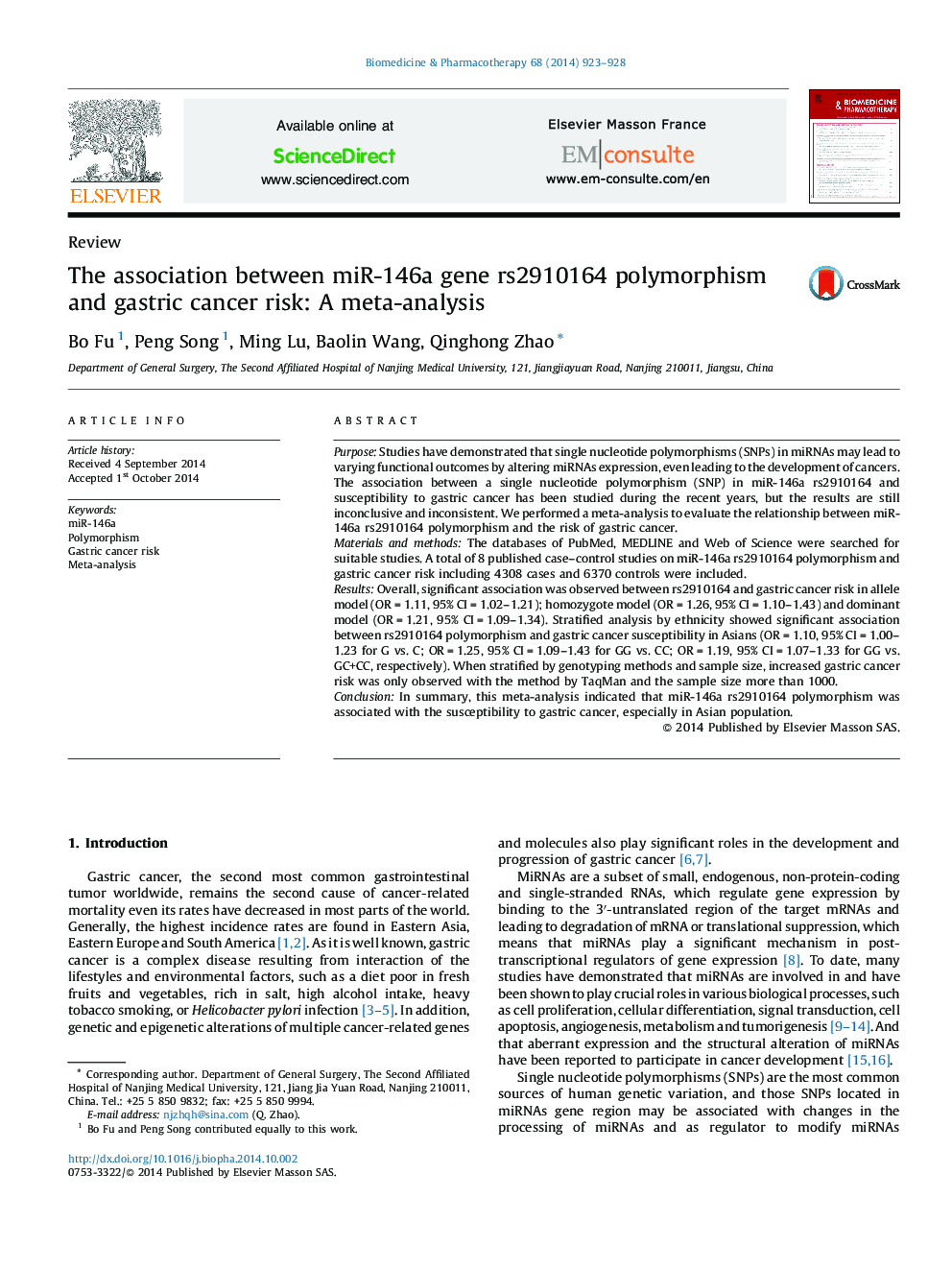| Article ID | Journal | Published Year | Pages | File Type |
|---|---|---|---|---|
| 2524250 | Biomedicine & Pharmacotherapy | 2014 | 6 Pages |
PurposeStudies have demonstrated that single nucleotide polymorphisms (SNPs) in miRNAs may lead to varying functional outcomes by altering miRNAs expression, even leading to the development of cancers. The association between a single nucleotide polymorphism (SNP) in miR-146a rs2910164 and susceptibility to gastric cancer has been studied during the recent years, but the results are still inconclusive and inconsistent. We performed a meta-analysis to evaluate the relationship between miR-146a rs2910164 polymorphism and the risk of gastric cancer.Materials and methodsThe databases of PubMed, MEDLINE and Web of Science were searched for suitable studies. A total of 8 published case–control studies on miR-146a rs2910164 polymorphism and gastric cancer risk including 4308 cases and 6370 controls were included.ResultsOverall, significant association was observed between rs2910164 and gastric cancer risk in allele model (OR = 1.11, 95% CI = 1.02–1.21); homozygote model (OR = 1.26, 95% CI = 1.10–1.43) and dominant model (OR = 1.21, 95% CI = 1.09–1.34). Stratified analysis by ethnicity showed significant association between rs2910164 polymorphism and gastric cancer susceptibility in Asians (OR = 1.10, 95% CI = 1.00–1.23 for G vs. C; OR = 1.25, 95% CI = 1.09–1.43 for GG vs. CC; OR = 1.19, 95% CI = 1.07–1.33 for GG vs. GC+CC, respectively). When stratified by genotyping methods and sample size, increased gastric cancer risk was only observed with the method by TaqMan and the sample size more than 1000.ConclusionIn summary, this meta-analysis indicated that miR-146a rs2910164 polymorphism was associated with the susceptibility to gastric cancer, especially in Asian population.
